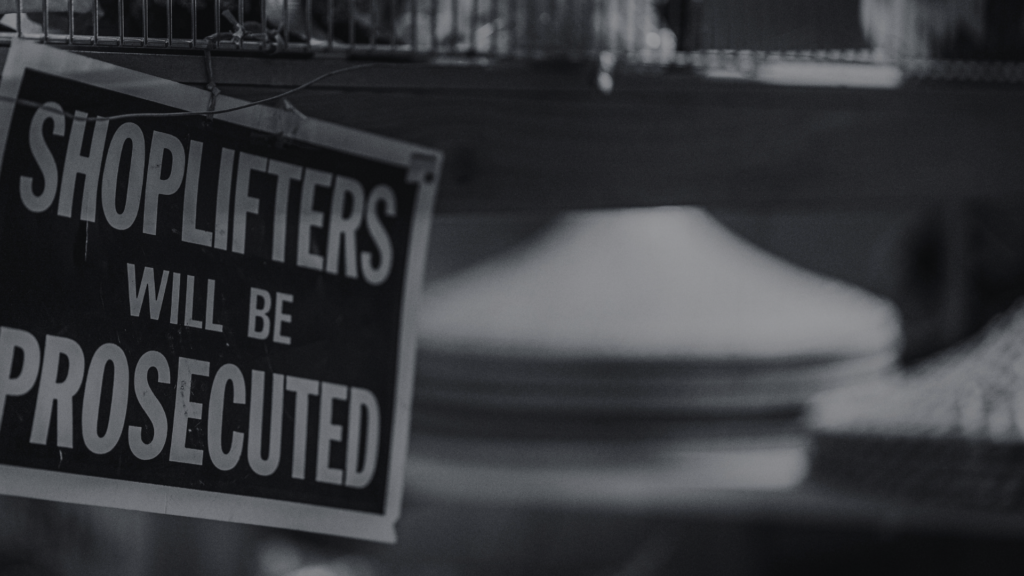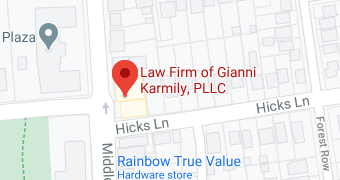On Long Island, if you’re charged with a crime that involves theft – larceny, burglary, robbery, embezzlement, or fraud – you are going to need the services and advice of a Nassau County theft attorney, and you’ll need to contact that attorney as quickly as possible.
What is the difference between theft and larceny? In the State of New York, there is no difference. Larceny, robbery, and burglary are defined and categorized as three different theft-related crimes.
Larceny is defined as simple theft, while burglary and robbery may include illegal entry, intimidation, or the use of weapons or force. Larceny is theft that does not involve intimidation, force, or illegal entry.
How are larceny crimes handled in this state? What penalties may the courts impose for larceny convictions? When should you contact a Nassau County larceny lawyer? If you’ll keep reading this brief discussion of theft crimes and your rights, you will find the answers to these questions.
How is Larceny Defined in New York?
A perpetrator of larceny knowingly means to permanently deprive a property owner from his or her stolen property.
Under New York law, property is any “money, personal property, real property, computer data, computer program, thing in action, evidence of debt or contract, or any article, substance or thing of value, including any gas, steam, water or electricity, which is provided for a charge or compensation.”
Sentences for larceny convictions in this state depend on the stolen property’s value, which is defined by state law as the property’s “market value” at the time the larceny occurs.
How Are Larceny Crimes Handled in This State?
Larceny in New York is classified as either grand larceny or as “petit” (petty) larceny. A petit larceny is a theft of property that is valued at or under $1,000. A conviction for petit larceny, a Class A misdemeanor, may be punished with jail and a costly fine.
Grand larceny is a felony in New York. A conviction for grand larceny generally prompts a prison term and/or probation. The exact penalty for a grand theft conviction depends on the stolen property’s “market value” at the time the theft took place. Grand larceny is:
- a Class E felony when the stolen property is valued at more than $1,000 to $3,000
- a Class D felony when the stolen property is valued at more than $3,000 to $50,000
- a Class C felony when the stolen property is valued at more than $50,000 to $1,000,000
- a Class B felony when the stolen property is valued at more than $1,000,000
If property is stolen through extortion, the charge is a Class C felony regardless of the property’s value. If an ATM machine is stolen, the charge is a Class D felony. Courts may also impose fines on convicted grand larceny offenders. Usually, the fine is double the stolen property’s value.
What Happens if You Are Charged With Larceny?
If you are charged with larceny, you may be arrested and held in police custody until your arraignment hearing. In some cases, a police officer may issue you a Desk Appearance Ticket after booking you. You will be released, but you will have to return for your arraignment.
Your arraignment is your first court hearing. You will be formally charged with larceny and allowed to plead guilty or not guilty. Do not plead guilty. You must be accompanied to your arraignment by your Nassau County theft attorney.
Especially when the charge is petit larceny, if you do not have any previous convictions or any pending arrest warrant, you will probably be released on your own recognizance.
Should You Accept a Plea Bargain?
Your attorney will speak to the prosecutor and attempt to resolve your case. Your options will depend on the case, the prosecutor, and on your own lawyer. Selecting the right Nassau County larceny lawyer is essential.
Many people have heard about “New York not prosecuting shoplifting,” which could not be further from the truth for Nassau County, Long Island.
Do not attempt to act as your own attorney. The law is too complicated, and too much will be at stake. Do not accept a plea agreement until you’ve discussed the offer thoroughly with your attorney.
In a typical plea deal, you would plead guilty to a lesser charge and agree to accept the penalty for that lesser charge. For example, a grand larceny charge might be reduced to a petit larceny charge.
However, if the charge against you cannot be reduced or dismissed, you should insist on your right to a jury trial, where your attorney will argue to a jury what actually happened and then ask that jury to find you not guilty.
What Are the Defenses to a Larceny Charge?
In many larceny cases, the right attorney will help you to avoid a conviction. After considering the details of the charge against you, your defense attorney may offer one of these defenses on your behalf:
- You believed that you legally owned or had a right to the cash or property in question, and you had no criminal intent.
- You’ve been misidentified, and another person actually committed the larceny.
- The larceny allegation against you has been fabricated, and no theft actually occurred.
What Are the Consequences of a Larceny Conviction?
You do not want to be convicted of larceny. Along with fines, jail or prison, and probation, a larceny conviction may also have “extra-legal” consequences. Convicted larceny offenders may have difficulty finding employment or housing or qualifying for a loan.
If you hold a professional license, a larceny conviction may prompt disciplinary action by your professional licensing board. If you are not a citizen of the United States, a conviction for larceny may compromise your immigration status.
What Else Should You Know About Larceny Charges?
On Long Island, if you are charged with a theft crime now or in the future, you must obtain reliable legal advice and effective defense representation as quickly as possible. Make the call – immediately – to a Nassau County defense lawyer.
Do not presume that you will be convicted if you are charged with larceny. A prosecutor will have to prove beyond a reasonable doubt that you are guilty, and that may be challenging. Good defense lawyers have the best chance of prevailing in these cases on behalf of their clients.
Nevertheless, if you are charged with larceny, you must take the charge seriously – whether or not it is questionable if you committed the crime – and contact a Nassau County defense lawyer for help as quickly as you can.









